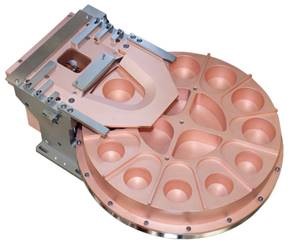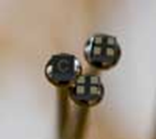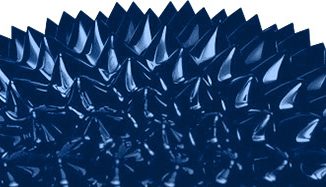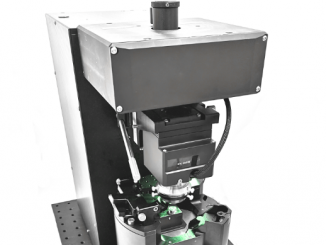
Ferrotec Corporation, a manufacturer of electron beam evaporative coating systems, announced that the Nanofabrication Lab within Penn State’s Materials Research Institute has ordered a special, advanced-configuration electron beam evaporation system which utilizes a non-contact magnetic drive.
With enhanced substrate processing technologies packed into a compact, R&D-class system, the lab will have access to unmatched levels of precision uniformity, said Ferrotec. The Temescal FC-2000 will incorporate the company’s patented non-contact, magnetic drive HULA substrate carrier system. While it represents a cornerstone feature of the premium Temescal Auratus line of coaters, fitting the HULA into a compact system presented challenges due to the size and planetary motion path of the carrier, but the precision uniformity it enables is expected to deliver significant benefits for select research on wafers up to 150mm diameter.
“We were really excited by the uniformity results we’d seen in the Temescal Auratus systems but as a research facility we couldn’t justify one of these production-capacity systems,” said Chad Eichfeld, director of operations at the lab. “Working closely with the Temescal team, they took our technical requirements and were able to implement a HULA carrier system in a R&D-class system that was perfect for our needs.”
“At Ferrotec, we are dedicated to advancing capability and progress in critical issues involved in e-beam evaporation.” said Gregg Wallace, managing director of Temescal Systems at Ferrotec. “We are pleased to have worked with Penn State to bring this level of functionality to the research market and we look forward to partnering with Penn State and its MRI team to further their industrial engagements.”
The institute and lab are based in University Park, Pennsylvania in an industry-friendly facility that provides open access to its facilities for fabrication at the nano- and micro-scale in conjunction with materials and device characterization utilizing advanced techniques and computational modeling capabilities backed by faculty and staff experts.
For more information, visit: https://www.mri.psu.edu/Temescal.



